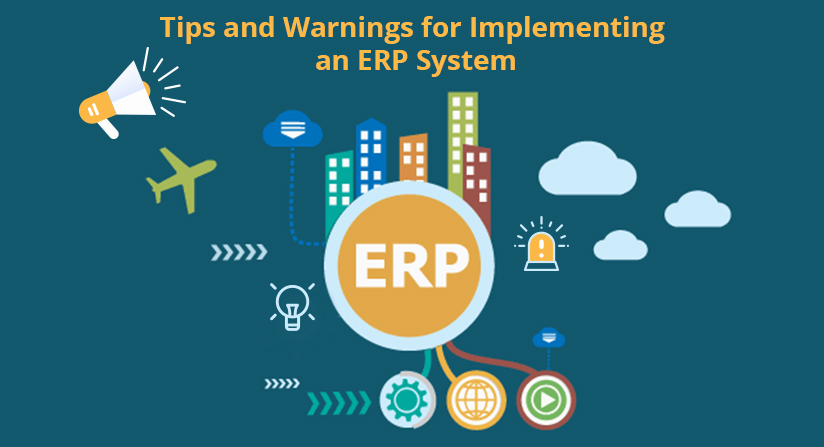Gone are the days when ERP was merely a business management software in which only big budgeted companies invested. Now, it has become an indispensable and integral part of the business that streamlines daily processes and boosts the bottom line.
ERP implementation is a major task that requires organizations to efficiently utilize resources and take the time to make sure that the software creates a remarkable ROI for the business. However, one question is usually asked by every person who wants to get ERP implemented in their organization – how long does it take for implementation? The answer to this question is – it varies! Multiple items determine how long it will take. The go-live date doesn’t need to be strictly followed; there can be an inaccurate schedule!
So, how long does an ERP system take to get implemented?
This is one of the most commonly asked questions. Determining the time frame depends on the size and complexity of the business and the ERP software. From a couple of weeks to a few years, ERP implementation time is contingent upon the desired modules, deployment locations, data conversion, number of users, as well as available resources.
- What is the process of determining the actual time estimate of an ERP implementation?
Implementing ERP software requires a structured methodology that is focused on strategy, people, and processes. Among the various methods used, a good one will cover all the bases and allow businesses to handle unexpected elements without negative consequences.
Before the implementation of an ERP system, you need to define the type of dashboard capabilities and reporting know-how required to be configured within the software. It is also crucial for businesses to present the accurate number of users they have so implementation consultants can identify added complexities. This will help them identify how many users are to be trained and to complete other ad-hoc tasks on time.
The first step to a smooth implementation is choosing a good ERP software that meets your specific business requirements. If the team is extensive and users are many, and the company is spread all over the world, it may take years to get the implementation done. On the other hand, if it’s a small or mid-sized business located in one city, it may take a few days or weeks.
- Increased worker safety
Every manufacturing process is different and this depends on the nature of the goods that you produce. Machines are the workhorse of almost every small and mid-sized manufacturing business. However, there are still some operations where manpower is required.
Certain assembly operations of parts and components are performed manually and this can be dangerous, if not done carefully. When such tasks are automated, it becomes easy for organizations to stay in compliance with government regulations and other worker protocols.
- How can you define the scope of implementation and how soon can a company expect to go live?
The implementation team must create a roadmap that includes previously defined timelines, goals, objectives, training procedures, and team responsibilities. It is always good to ask your ERP vendor if the solution will reduce backlogs, improve on-time deliveries, improve production yields, and more. It defines the scope of implementation and streamlines the operations.
In addition to this, the key stakeholders in the project should be given a suitable role and held accountable for it. With positive behavioral elements in the project, there is less chance of the project running over the suggested date.
Many organizations review the capabilities of their software and train the entire team of users to understand every function of it and identify any gaps.
- What can you do to ensure a strategic and successful ERP implementation?
Sometimes during implementations, the process gets stuck. Often it is because organizations don’t fully understand their specific business requirements. It’s important to be fully prepared before implementation to avoid delays. Let’s have a look at the steps of an ERP implementation:
- Strategic Planning – Assign a team to the project, examine current business workflow, set the target, develop a project plan
- Procedure Review – Evaluate the software capabilities, determine manual processes, develop standard operating procedures
- Data Collection and Clean-up – Convert data, collect new data, review all data input, clean up data
- Training and Testing – Pre-test the database created; ensure functional, performance, and integration testing; train the users, perform final testing
- Develop a final go-live checklist
- Is there any difference between implementing ERP on-cloud or on-premise?
ERP implementation planning is quite a cumbersome process. When we talk about on-premise ERP, undoubtedly here, implementation is a more time-consuming process as hardware such as desktop, laptop, CPU, etc. are required. Vendors may take more time to get the hardware delivered and it may be a long process. On the other hand, cloud ERP can be implemented from anywhere in the world with no added procurement of hardware.
- Who predicts or decides the timeframe?
Sometimes the customer decides the specific date when the implementation should be done, and the software should go live. More often, the team performing the implementation should schedule the project after having an idea of what work needs to be done. An ERP implementation timeline is also affected by the number of customizations to be done, size of the business, location, if there are multiple companies, and the acceptance of the ERP by every department.
These are the five things that your ERP implementation plan must have:
- Project team
- Budget with cost forecasting
- Change management
- Training
- A maintenance plan
Project team – While creating your project team, your main aim is to delegate the workload to individuals who are accountable for their work. There are four core members of the implementation team who are very important as they will be overseeing the implementation tasks. First is the project manager who manages and cascades the tasks to others. Then, the application analyst is responsible for cleaning and migrating the data. Finally, a developer and quality analyst will develop customizations (if required) and test them before the go-live date.
Budget with cost forecasting – As per a survey done by Panorama research, the overall cost of ERP implementation usually runs over budget by 56%. The major reason is that businesses consider only the license cost. However, there are so many expenses such as network upgrades, staff overtime, customization, data backups, training fees, and procurement of hardware that should be budgeted along with the license cost.
Change management – No two businesses are alike. While the software gets implemented in your organization, you need time for educating the users so they can manage the change. Therefore, it is always suggested to have an effective communication plan or organizational strategy with projected benefits to build a proper change management strategy.
Training – The implementation plan must factor in having a room that can be used for training and guiding the employees so that they can leverage the software to its full potential.
Maintenance plan – ERP implementation is a time-consuming task that needs a clear maintenance plan. A well-created and planned maintenance contract allows businesses to access the latest technology and functionality. With access to a team of support specialists, your questions should always be answered.
Wrap up
Businesses, whether small or large need an ERP solution to stand out in today’s competitive marketplace. Once you select your system, good implementation is key to get the most out of your software. If implemented properly, ERP can tremendously enhance the productivity of your business.
If you are evaluating ERP solutions or are seeking information regarding the implementation process, get in touch with us at info@optiproerp.com.
OptiProERP is a trusted manufacturing ERP software that combines HR, production, quality control, CRM, and other industry-specific tools in one system.
Follow Us










